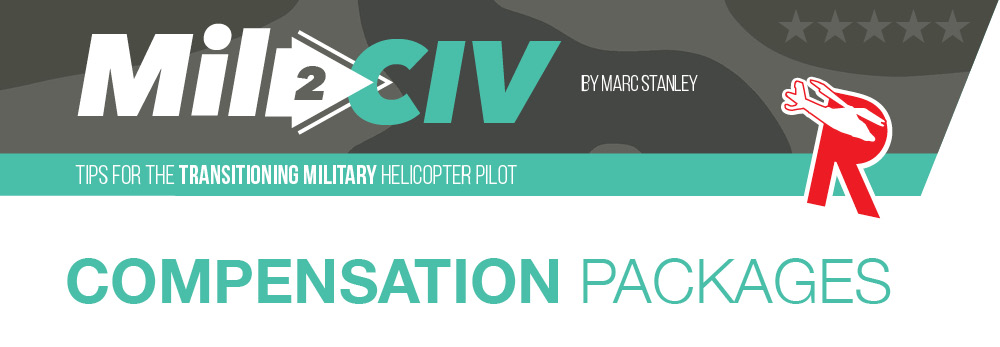|
May
24
2021
|
|
Posted 4 years 282 days ago ago by Admin
|
|

When I got my first job out of the military, I was just happy with getting a job and a pretty good salary. It wasn't until new hires that came after me, did I hear about the compensation packages that they got when they were hired. Compensation packages refer to the combination of wages, salaries, and benefits an employee receives in exchange for work. Compensation may include hourly wages or an annual salary, bonus payments, incentives, and benefits (such as group health care coverage, disability insurance, and contributions to a retirement savings account). A total compensation package can have several components and tend to vary by employer.
It varies greatly depending on the employer and position, but here are the most common components of compensation: salary plus any bonuses or commissions; paid holiday vacation and sick days; medical, dental, and vision insurance; 401(k) company matching of investments; profit sharing or stock options, and/or pensions.
In addition, as employers strive to remain competitive and attract top talent, nontraditional perks are becoming more common. Here are a few examples: moving expenses, bonuses, 1-2 months paid housing, additional vacation, and a flexible schedule.
Compensation packages or benefits are generally items in addition to your base salary and bonuses and are important to consider for several reasons. For example, if you didn’t retire from the military and do not receive TRICARE benefits any longer, your benefits can help offset the costs of necessary services that you might otherwise have to pay for out of pocket or even be unable to afford. Employees frequently get a better rate by joining the company health insurance plan than they would if they purchased policies independently. Whether you are eligible for TRICARE or not, I highly suggest signing up for your company's family dental and eye insurance; they are very inexpensive each month, and TRICARE does cover a little, but it’s not much. Furthermore, companies do not offer additional incentives for not taking their offered health insurance; it’s a take it or leave it type of situation.
Employment benefits help you maintain a healthy work-life balance. Companies are concerned that employees often feel stressed from juggling their jobs and everyday life, so many offer benefits that offset demanding work responsibilities. Telecommuting, for instance, allows employees to avoid a hectic, lengthy drive to the office. Another example is paid time off for volunteer activities. These and similar benefits help to improve employee morale and mental health. Work-Life balance is important to many companies because it incentivizes you to stay with the company longer.
Additionally, benefits can help you prepare for the future. Whether it's subsidized training that could lead to a promotion and higher salary or a 401(k) plan that helps you get ready for eventual retirement, benefits are set up to reward you for your time with the company by making your future better and more secure.
When it comes to evaluating compensation packages; each one of us is going to base it on our personal needs, goals, and priorities. What is important to me will be different than what you think is important. Your priorities are your priorities and yours alone.
As we have stated many times in our classes and articles, the job interview is not the time to talk about salary and benefits. There will be time to discuss these when you get your job offer. Do your homework before you enter into negotiations, first and most importantly know your self-worth. There are several web pages that offer self-worth calculators to help; a key thing to remember is don’t ask for the world and negotiate yourself out of a new job.
Like everything in your transition and job search, doing your homework and research will aid you when it comes to negotiating the best compensation package you can.
About the author: Marc Stanley retired from the U.S. Army in 2015 after 26 years, and transitioned into civilian life to become a corporate pilot flying the AW139. Stanley regularly teaches military-to-civilian transition classes at industry events, and volunteers with veterans outreach programs.